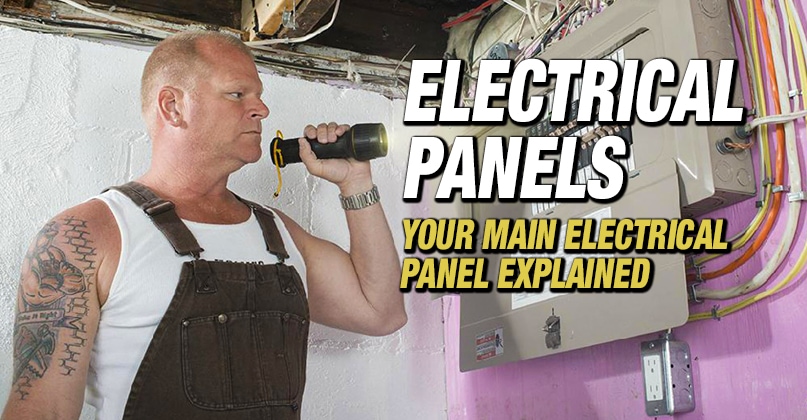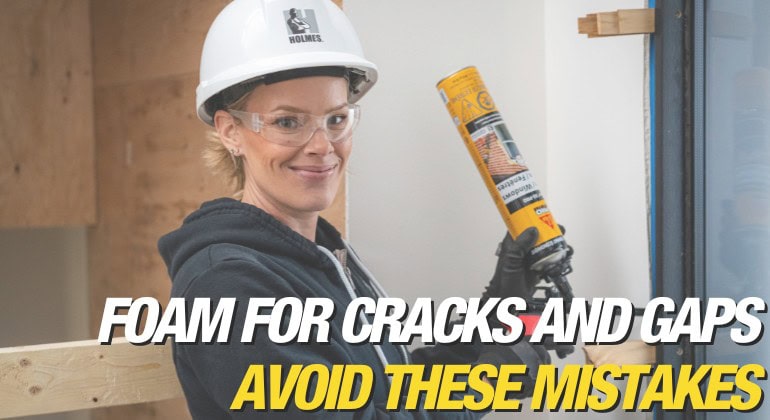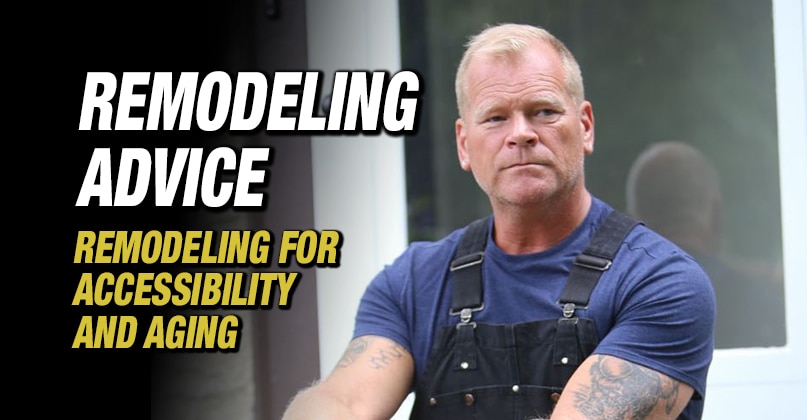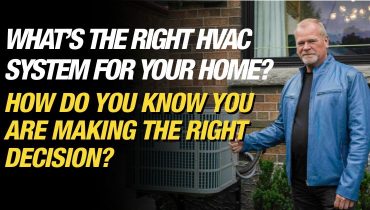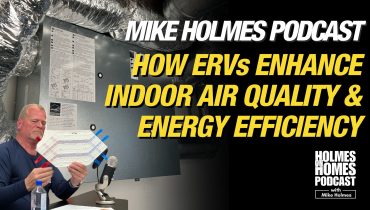I love my kitchen but it’s not large so it gets messy fast – add two growing young daughters, a husband and a cat – you have to stay organized....
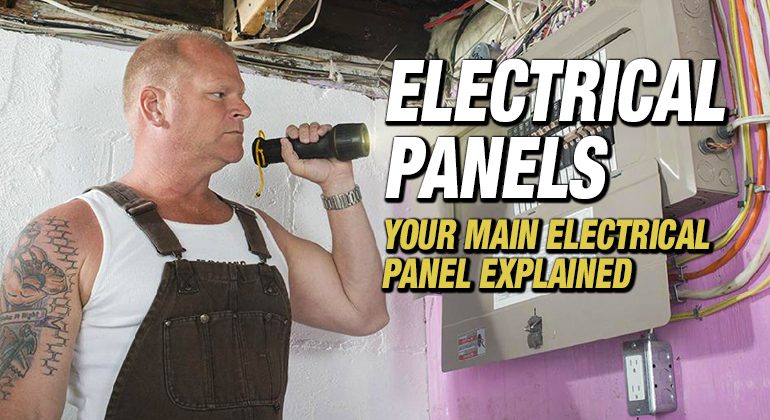
Your Main Electrical Panel Explained
By Mike Holmes
Mike’s Advice / Home Safety & Maintenance
Friday, March 10th, 2023 @ 4:01pm
What Does An Electrical Panel Do?
While I never encourage anyone to do their own electrical work, I think it is important for homeowners to understand the components of their electrical panel. Before you invest in home improvement projects, you should make sure the main systems of your house (your HVAC, your electrical, your roof, etc.) are running properly. If there is an issue with any of those components, that’s where you should prioritize your home projects.
I asked the experts at Eaton’s Electrical Sector to explain the components of your electrical panel.
The Location of Your Electrical Panel (or loadcenter)
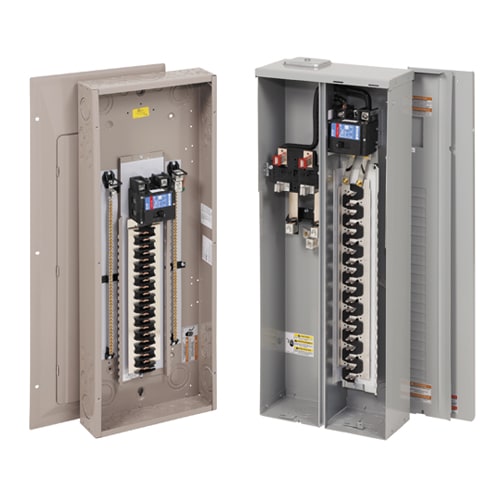
Photo of an Eaton loadcenter
Generally, a loadcenter can be found in a basement or garage, but it may be located outside the home or in the utility room. A loadcenter can also be known as:
- Breaker box
- Load center
- Loadcenter
- Sub Panel
- Circuit Breaker Box
- Electrical panel
- Fuse Box – for you old schoolers
RELATED
Curious about the biggest electrical safety disasters I’ve come across? Check out this article.
The Parts of Your Electrical Panel
Main breaker/Service Disconnect
Opens all ungrounded conductors simultaneously, shutting off electrical service to all your branch circuits
Thermal Magnetic Breakers
Usually prominent in homes with service installed prior to 2008
Single pole
single pole takes up one space and provides power to 120V applications such as receptacles and lighting outlets
Two pole
takes up two spaces and provides power to 240V applications such as dryers, hot water heaters, electric range
Electronic Circuit Breakers
Include GFCI, AFCI, and AFGF (Dual Function)
GFCI (Ground Fault Circuit Interrupters)
Helps protect personnel from electric shock. A GFCI protected outlet must be installed on outdoor outlets, bathrooms outlets, kitchen counters, and hot tubs – anywhere there is the potential for water and electricity to come into contact.
AFCI (Arc Fault Circuit Interrupters)
Helps protect the home from electrical fires
RELATED
More on GFCIs in this article.
Here are some common questions I get about electrical panels:
Q: How can I shut off electrical power to my house?
A: Grab a flashlight and be prepared for the loss of electrical lighting. Locate your main breaker inside your loadcenter. This breaker should be identified inside your loadcenter as the main service disconnect. Turn the breaker handle to the off position labeled on the product. This will de-energize all the branch circuits or loads.
Q: Where is the loadcenter most likely located in my house?
A: Generally, a loadcenter can be found in a basement or garage.
To find a local electrical contractor, check out Eaton’s certified electrician network.
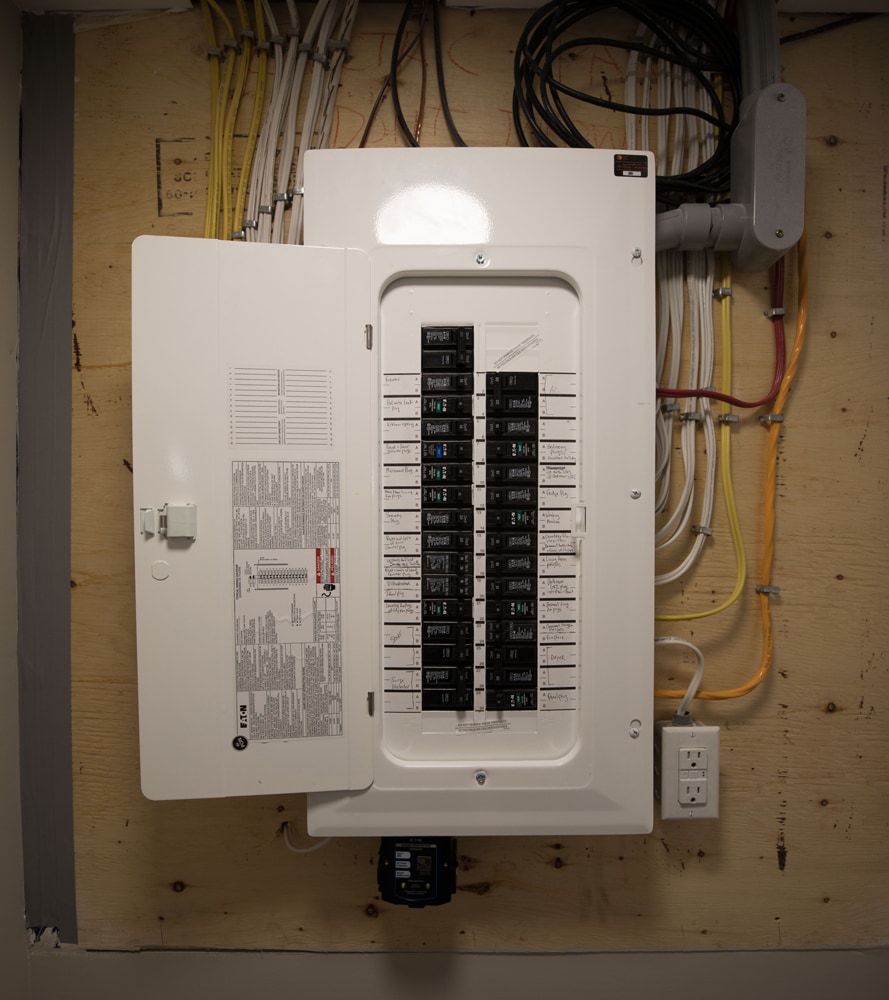
But your loadcenter could also be located outside the home or in your utility room.
Q: What causes a main electrical breaker to keep tripping?
A: An overloaded system where you are drawing more current than the breaker is rated for. This usually occurs when you are adding too much load to a circuit. Sometimes a loose connection on the line or load side can cause a thermal trip. You should contact your electrical expert to troubleshoot.
Q: What causes a branch circuit breaker to keep tripping?
A: Branch breakers trip to keep our system safe.
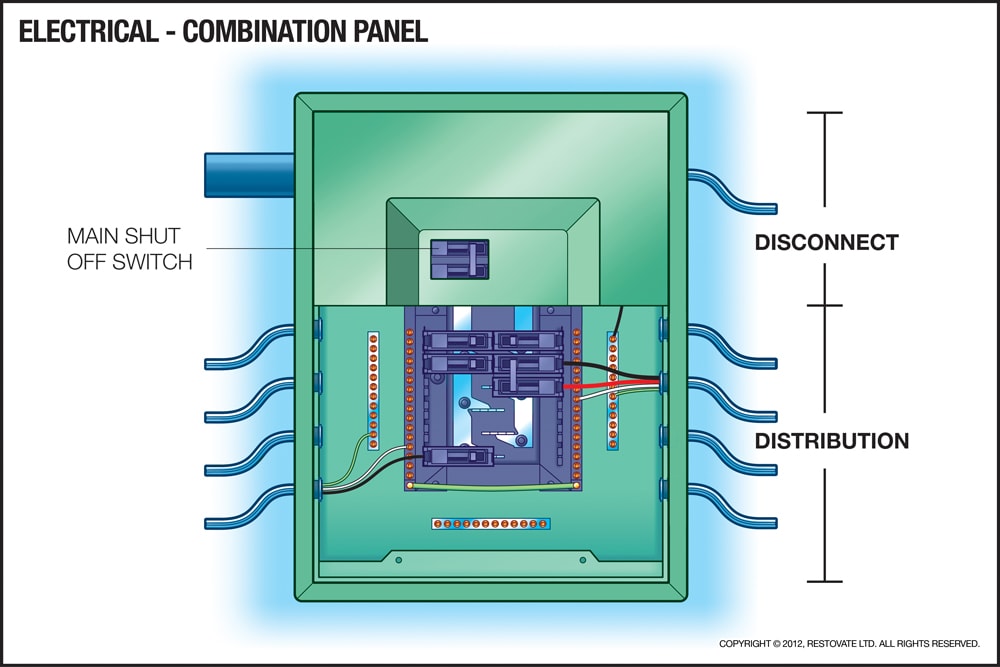
Depending on the type of branch circuit breaker, breakers trip to a safe position to protect the home and homeowners from arc faults, ground faults, or thermal overload.
Reset the breaker, if the breaker trips again contact your electrical expert.
Q: What causes a partial power outage in a home?
A: Either a loose or bad connection at utility transformer, meter socket, or main breaker disconnect. You should consult a professional if this occurs within your home.
Q: Should you have clear access to your loadcenter?
A: Generally, you should have clear access to your loadcenter. Your loadcenter is safety equipment and should be accessible to you and your electrical expert.
Learn how to protect yourself from electrical disasters in this article.
RELATED
Mike Holmes’ Top 5 Biggest Electrical Fails
Can you do your electrical work yourself? DIY electrical work explained
